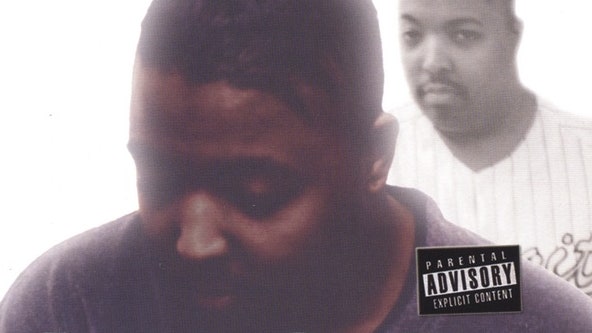“Let me tell you something about house music,” the voice says. If you’ve ever partied in a queer club, or a Black club, you’ve probably heard this voice. Hell, if you’ve ever danced to house music anywhere, for almost any length of time, anywhere in the world, you’ve heard its flamboyant, authoritative glory. It’s a building block of dance music, of Black and gay culture, of modern culture. “It’s not just a groove. House is a feeling,” it goes on. “And when you feel it, you will understand that house music is freedom.” Simply, then, a commandment drips from his lips like honey: “Feel it, children.”
The voice belongs to Aaron-Carl, who made unambiguously queer music in a time when such forthrightness wasn’t exactly an asset. Born Aaron-Carl Ragland in 1973 and nicknamed “Boogie” by his family, Aaron-Carl grew up in the white working-class suburbs of Taylor, Michigan. As a kid, he was obsessed with Prince—not only for the way Prince embodied his defiant racial and sexual politics in his sonics, but for the power embedded in the “Produced, arranged, composed, and performed by Prince” banner on many of the records. “I used to watch it spin around the turntable,” Aaron-Carl told the Submerge podcast. “That was such motivation. I was like, ‘If he can do it, I know I can do it. I have to do it.’ So, yeah, I got my little stacks of books and my little ink pens.”
By the time he was a teenager, he was making tracks with a keyboard, a sampler, and a cassette recorder. He was also sneaking into clubs, first checking out the Top 40 crowds at the Gas Station and then ducking upstairs into Heaven, where DJ Ken Collier was up to something much queerer. “Drag queens kicking all over the place… and nothing you had ever heard on the radio,” he told Submerge. One night in 1989, Collier played Jaydee’s epochal “Plastic Dreams.” “It was like two years before it hit mainstream. So when the song came on, the lights went red, and everybody just looked like one big wave of people dancing.” He ran up to Collier, begging for a track ID.
That song’s emphatic minimalism informed Aaron-Carl’s first songs. So did the bold, world-building techno of Underground Resistance, whose co-founder Mike Banks took Aaron-Carl under his wing. UR was militantly funky, but a little po-faced. Butch, even, unlike ghettotech, the high-speed and low-brow amalgamation of Miami bass and Detroit techno originally fashioned by DJs including Jeff Mills and the Wizard which, by the early to mid-’90s, had become a calling card for locals like DJ Godfather and DJ Assault. With his keyboard and sampler and four-track, Aaron-Carl found himself straddling these worlds.
